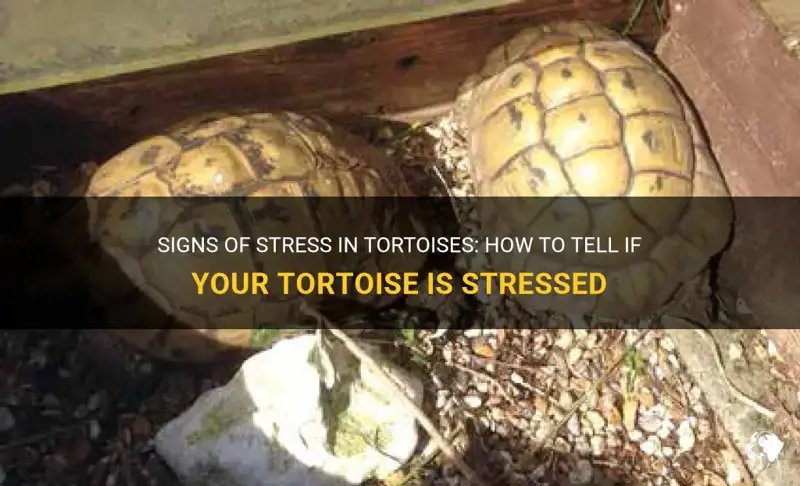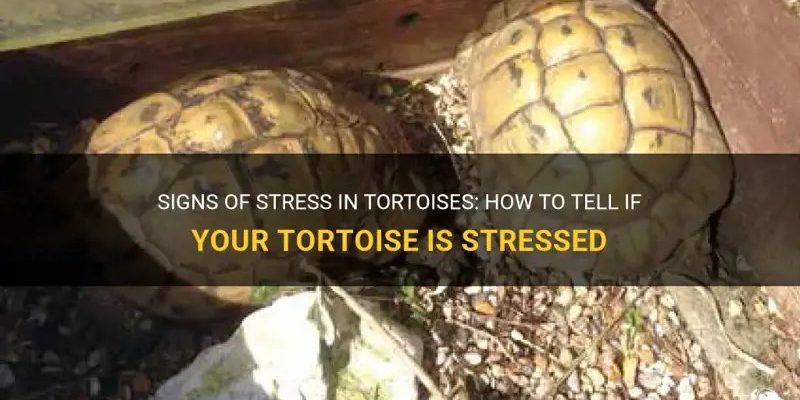
Picture this: you’re sitting in your comfy chair, enjoying a cup of coffee, and watching your tortoise meander around. Everything seems fine, but then you notice them hiding more than usual or acting a little sluggish. These changes can be subtle, and that’s why knowing the signs of stress or health issues in your tortoise is so important. Just as we all have our good days and bad days, tortoises can reflect their feelings and health through their behavior. So, let’s unpack some of those signs together!
Why Understanding Tortoise Behavior Matters
To keep your tortoise healthy and happy, it’s essential to recognize their behaviors. Each tortoise has its personality, similar to how we all have our quirks. One might be more social and enjoy exploring, while another might prefer solitude and cozy spots. Understanding these traits can help you spot any changes that might suggest stress or illness.
Stress in tortoises can come from various sources like changes in their environment, diet, or even handling. For example, if you recently moved their habitat to a different spot in the house or changed their substrate, they might take time to adjust. Stress can lead to health issues if not addressed, so keeping an eye on your tortoise’s habits is crucial.
By paying attention to your tortoise’s behavior, you can catch potential problems early. Just like a good friend notices when you’re off your game, knowing your tortoise’s routine allows you to be proactive in their care.
Common Signs of Stress in Tortoises
When it comes to stress, tortoises can show some clear clues. Here are a few behaviors to watch for:
- Hiding Behavior: If your tortoise suddenly starts spending more time in its hiding spot or doesn’t come out much, it could be a sign of stress. Tortoises often retreat when they feel threatened or uncomfortable.
- Reduced Appetite: A decreased interest in food can indicate something’s amiss. If your tortoise usually gobbles up its greens but suddenly snubs them, it might be time to investigate.
- Unusual Aggression: If your normally gentle tortoise starts acting defensive or aggressive, stress or discomfort might be at play. This change can arise from stressors in their environment, like loud noises or new pets.
Understanding these signs helps you respond quickly. If your tortoise seems off, think about possible reasons behind the change. Was there a new sound in the house? Did you change their diet? Addressing these concerns can help bring your tortoise back to its relaxed self.
Physical Signs of Health Issues
Apart from behavioral cues, physical signs can tell you a lot about your tortoise’s health. Paying attention to these can help you spot problems early:
- Shell Condition: A healthy tortoise will have a smooth, shiny shell. If you notice any cracks, discoloration, or soft spots, these could indicate underlying health issues.
- Eyes and Nose: Check for any discharge from the eyes or nose. Clear discharge can sometimes be normal, but cloudy eyes or consistent discharge can signal illness.
- Breathing Patterns: Listen for any wheezing or puffing sounds while your tortoise breathes. Abnormal sounds can indicate respiratory issues that need immediate attention.
Just like us, tortoises can’t tell us when something is wrong. Observing these physical signs can allow you to take preemptive measures and consult a vet if needed.
Factors That Can Cause Stress in Tortoises
Certain aspects of their environment can lead to stress in tortoises. Here’s a breakdown of what to keep an eye on:
- Temperature Fluctuations: Tortoises are ectothermic, meaning they rely on their surroundings to regulate their body temperature. If their habitat is too hot or too cold, they can become stressed.
- Social Interaction: Some tortoises enjoy companionship, while others prefer solitude. Introducing them to new animals or even moving them into a new space can cause anxiety.
- Diet Changes: Abrupt changes in diet can affect their mood and health. Stick to a consistent, balanced diet to avoid unnecessary stress.
Think of your tortoise’s home like your own. If your space is too loud, too bright, or too cluttered, it can create discomfort. The same goes for them! When you create a peaceful environment, your tortoise will thrive.
How to Reduce Stress in Tortoises
Making small adjustments can go a long way in helping your tortoise feel safe and secure. Here are a few tips:
- Stable Environment: Keep their habitat consistent in terms of temperature, humidity, and lighting. Avoid moving their enclosure around too often.
- Gentle Handling: If you must handle your tortoise, do so gently and for short periods. Respect their space and let them come to you at their own speed.
- Provide Hiding Spots: Offer various hiding spots within their enclosure. Tortoises benefit from having places to retreat where they feel safe.
Creating a calm, stable environment is like putting on a cozy sweater for your tortoise. It makes them feel snug and allows their true personality to shine.
When to Seek Professional Help
It’s essential to know when to reach out to a vet. If you notice any persistent signs of stress or health issues, don’t hesitate to consult with a veterinarian. Here are some signs that warrant a trip to the vet:
- Continued Appetite Loss: If your tortoise refuses food for more than a couple of days, it’s time for a professional check-up.
- Behavior Changes: Sudden aggression or lethargy that lasts for an extended period is concerning.
- Physical Symptoms: Any unusual physical signs, like a cloudy eye or shell deformity, should be addressed quickly.
Just like we occasionally need a check-up, your tortoise might require a little professional attention now and then.
Understanding tortoise behavior is an essential part of being a responsible pet owner. By keeping an eye on both their behavior and physical signs, you can ensure your tortoise is happy and healthy. Remember, every tortoise has its unique quirks, so take the time to learn about yours.
If you notice signs of stress or health issues, take proactive steps to create a comforting environment. And don’t hesitate to consult a vet if needed. Caring for these fascinating creatures can be a joyful experience, especially when you understand their needs. So enjoy the journey with your tortoise, and don’t forget to appreciate those little moments together!

